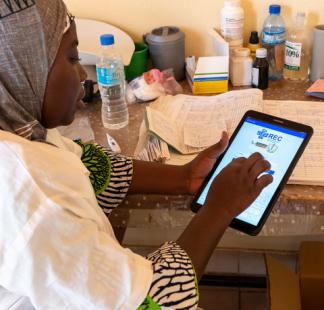Displaying 1 - 12 of 15
26 Jan 2026 - 30 Jan 2026
Face to Face
This third edition of the face-to-face training course is designed to provide a comprehensive understanding of how digital technologies can…
Languages:
- English
02 Feb 2026 - 27 Feb 2026
Online instructor led
This 4-week online Instructor-led course dives deep into the world of Digital Innovation Ecosystems. Participants will gain a comprehensive…
Languages:
- English
Open
Online self-paced
The past two years have shown that digital transformation is no longer optional. It is a central tool for public service delivery, citizen engagement…
Languages:
- English
- French
- Portuguese
- Spanish
02 Mar 2026 - 30 Mar 2026
Online instructor led
The course highlights the shifts in telecoms regulation, regulation for e-commerce and digital government, regulation for cybersecurity, and skills…
Registration:
Open until 24 Feb 2026
Languages:
- English
03 Mar 2026 - 24 Mar 2026
Online instructor led
This course provides policymakers and practitioners with the foundational knowledge and practical tools to design effective data governance…
Languages:
- English
23 Mar 2026 - 27 Mar 2026
Face to Face
This training course provides participants with an intermediary exposure to the world of policymaking and electronics producer responsibility in the…
Languages:
- English
01 Apr 2026 - 06 May 2026
Online instructor led
As governments increase reliance on digital platforms and cloud services, digital sovereignty is defined by control—not intent. This…
Registration:
Open until 16 Mar 2026
Languages:
- English
04 May 2026 - 31 May 2026
Online instructor led
El curso ofrece una formación integral y práctica sobre cómo los procesos de transformación digital impactan la gestión pública, el diseño de…
Registration:
Open until 24 Apr 2026
Languages:
- Spanish
11 May 2026 - 15 May 2026
Online instructor led
Modern societies are powered by digital highways—the transmission networks that connect people, businesses, and governments across the globe. As the…
Registration:
Open until 13 Apr 2026
Languages:
- English
11 May 2026 - 24 May 2026
Online instructor led
This course focuses on digital-intelligent convergence and security, integrating AI, data governance, and digital transformation as three core…
Registration:
Open until 27 Apr 2026
Languages:
- English
19 May 2026 - 21 May 2026
Face to Face
Digital and AI transformation are critical enablers for advancing sustainable development and economic resilience, particularly in landlocked and…
Registration:
Open until 22 Mar 2026
Languages:
- English
01 Jun 2026 - 30 Jun 2026
Online instructor led
À mesure que les gouvernements renforcent leur dépendance aux plateformes numériques et aux services cloud, la souveraineté numérique se définit par…
Registration:
Open until 15 Jun 2026
Languages:
- French






